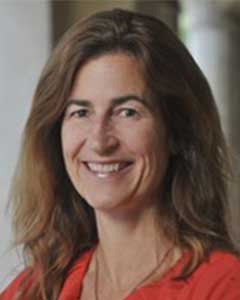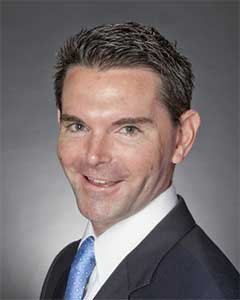Eighth Annual Diagnostic Excellence Summit:
Measuring Diagnostic Excellence – from Data to Implementation
Ensuring equity and patient-centeredness
May 22, 2024, 9 a.m. – 4 p.m.
Johns Hopkins University
School of Nursing Auditorium
525 N. Wolfe Street
Baltimore, MD 21205
The 2024 Johns Hopkins Armstrong Institute Center for Diagnostic Excellence summit will focus on measuring diagnostic excellence. This event is a pivotal gathering for health care professionals and researchers eager to delve into the significance of timely, accurate and well-communicated diagnosis.
Attendees will hear from their peers on: the importance of measuring diagnostic excellence; how to develop, test and implement measures that leverage available data and analytics; and implementation barriers and facilitators. Special attention will be given to ensuring equity and adopting a patient-centered lens for measurement, so that every patient receives the highest quality of diagnostic care.
Elevate your understanding of equity and patient-centeredness in health care by exploring how these principles intertwine with diagnostic excellence, ensuring that every patient receives the highest quality of diagnostic care.
Join us at the Eighth Annual Diagnostic Excellence Summit: Measuring Diagnostic Excellence – from Data to Implementation – ensuring equity and patient-centeredness.
Learning objectives:
- Understand the importance of measuring diagnostic excellence in both outpatient and inpatient settings.
- Identify key data sources and analytical methods that can be used to measure diagnostic excellence.
- Reflect on the “lessons learned” by peers who have implemented diagnostic excellence measures.
Johns Hopkins Summit Organizers
David Newman-Toker, M.D., Ph.D.
David Robinson Professor in Vestibular Neurology

Kathryn McDonald, Ph.D., M.M.
Bloomberg Distinguished Professor of Health Systems, Quality and Safety

Matt Austin, Ph.D., M.S.
Associate Professor of Anesthesiology and Critical Care Medicine, Johns Hopkins University School of Medicine
Center for Diagnostic Excellence Co-Investigator

Vadim “Vaadeem” Dukhanin, M.D., M.H.S.
Assistant Scientist, Department of Health Policy and Management, Johns Hopkins Bloomberg School of Public Health
Center for Diagnostic Excellence Co-Investigator

Yuxin “Daisy” Zhu, Ph.D.
Assistant Professor, Department of Neurology, Johns Hopkins University School of Medicine, and Department of Biostatistics, Johns Hopkins Bloomberg School of Public Health
Center for Diagnostic Excellence Co-Investigator

Keynote Speakers
Elizabeth Drye, M.D., S.M.

Allen Kachalia, M.D., J.D.

Highlights from Past Conferences
-
Over the past few years, research interest in diagnostic digital health has blossomed at Johns Hopkins and across the country. What is new? What have we learned? What is the place of the clinician-scientist in this new milieu? What does a successful research career in this space look like?
This event focused on diagnostic digital technologies and their associated data analysis, machine learning and artificial intelligence. We will cover the gamut of concerns, from social and ethical to technical and tactical.
The use of digital health for diagnosis — whether measuring patient data or providing diagnostic advice — has become part and parcel of the practice of medicine. Many faculty, especially junior faculty, have their careers invested in different aspects of this practice, whether it be machine learning and the analysis of clinical data to develop decision support, the inclusion of decision support into practice, or the inclusion of new technologies. Over the past few years, Johns Hopkins has developed service and educational capacity to help faculty members, and has developed a rich network of collaborators. And yet some key questions remain: How is digital health research different from traditional biomedical and health services research? In the era of tech companies racing to develop new products in a time frame so different from academia, what is the role of faculty in the digital health ecology, and how do they develop a research career that prospers?
Learning objectives
- Identify diagnostic digital-health research resources to fit to their needs.
- Begin relationships with potential collaborators for research or for funding.
- Relate their research plans to those of fellow faculty or to those of senior faculty who have pioneered the pathway for them.
- Articulate necessary and state-of-the-art components of a fundable diagnostic digital-health research project.
- Identify gaps in, and opportunities for, diagnostic digital-health methods or services.
Presentations
- “Consumer Technology and Digital Diagnostics”, presented by Kapil Parakh, M.D., Ph.D.
- "Digital Diagnostics in Global Health", presented by Neha Verma, Ph.D.
-
IBM Watson Health. Google Health/DeepMind. Ada. Human Dx. We’ve all heard that the artificial intelligence steamroller is coming to medical diagnosis, often followed by the question: Would you rather be the one steamrolled — or the one driving the steamroller? Medical diagnosis in clinical practice has been an exclusively human task for centuries, but studies consistently show that current diagnostic accuracy is far from perfect, with likely hundreds of thousands of patients suffering serious misdiagnosis-related harms each year in the U.S. Use of artificial intelligence and machine learning (AI/ML) in medicine is on the rise and is likely here to stay. Some even predict that AI/ML will completely replace clinicians within a matter of decades. But is (wo)man versus machine our only option, or is that a false choice?
While the impetus to develop digital tools to improve diagnosis for our patients is readily justified, concerns about AI/ML’s inaccuracy, bias and loss of humanity are also well founded. The 2023 Diagnostic Excellence Summit featured an amazing lineup of expert speakers and small group discussions focused on ways to envision keeping diagnosis human in the digital age.
Keynote speaker: Ziad Obermeyer — Blue Cross of California Distinguished Associate Professor at the University of California, Berkeley, where he conducts research and teaches about machine learning and health. Obermeyer is a Chan Zuckerberg Biohub Investigator and faculty research fellow at the National Bureau of Economic Research, and he was named an emerging leader by the National Academy of Medicine. He also practices emergency medicine in underserved communities. Obermeyer’s work has been published in a wide range of journals, including Science, Nature Medicine, The New England Journal of Medicine, The Journal of the American Medical Association and International Conference on Machine Learning, and he has won awards from professional societies in medicine and economics. Obermeyer has served as a consultant at McKinsey & Co. and an assistant professor at Harvard Medical School.
Presentation Title: “A Machine Learning Approach to Reducing Diagnostic Error”
Machine learning is a powerful new tool to study how physicians make decisions and how to combat low-value health care. Using the example of testing for heart attack in the emergency department, Obermeyer will show that physicians both over test and under test, and will document a range of cognitive factors at play. The results suggest a central role for physician error in generating low-value care, and suggest a return to policy solutions that address both overuse and under use of testing .
-
The Diagnostic Excellence Summit was open to the public to discuss disparities and equity issues facing patients during the COVID-19 pandemic, to consider innovations in care models, research and clinical interventions, and to examine gaps in knowledge and best practices regarding addressing the impact of disparities on diagnosis.
- Keynote Speech: “National Perspectives in Health Care Disparities” by Jeffrey Brady, director of the Agency for Healthcare Research and Quality’s Center for Quality Improvement and Patient Safety,
- The first segment of the summit, led by Brady, featured a panel of experts discussing a national perspective on health care disparities and the pandemic’s impact on access and equity concerns.
- The second segment, Understanding the Intersection of Disparities and Diagnostic Excellence, featured talks from leaders evaluating access and equity issues impacting our communities. The session explored key concepts in disparities research as well as innovations in telehealth deployment and education to consider and address challenges in clinical care in this new environment.
- The third and final segment of the conference, led by practicing clinicians in primary care, women’s health and emergency medicine, focused on real world clinical experiences as well as innovative approaches in community engagement and in modeling, methods and technology. Faculty presented specific clinical adaptations to improve care quality, access and equity during the pandemic and to facilitate conversation to learn from other organizations and clinicians across the country.
-
This three-hour virtual summit focused on diagnosing SARS-CoV-2, COVID disease and non-COVID diseases during the COVID-19 pandemic.
- Panel discussions led by Yukari Manabe, professor in the Division of Infectious Diseases in the Department of Medicine, focused on current and future diagnostics for the SARS-CoV-2 virus.
- A presentation by Joshua Sharfstein, vice dean for public health practice and community engagement, featured a panel of clinical, public health and public policy experts discussing an overall strategy to address both COVID and non-COVID disease diagnosis across different levels of the public health response.
- Presentations by the leaders of the Center for Diagnostic Excellence included Susan Peterson, assistant professor of emergency medicine, and Kathryn McDonald, a patient safety expert and Bloomberg Distinguished Professor of Health Systems, Quality and Safety.
- Networking with patient safety and quality champions across our health system.
-
Presentations by faculty and staff members throughout Johns Hopkins Medicine.
-
Educational courses:
-
Point-of-Care Lung Ultrasound in the Diagnosis and Stratification of Patients with COVID-19
-
Telehealth Diagnostic Triage of Patients in the Era of COVID
-
Being a Patient in the Midst of a Pandemic: Experiences Seeking COVID and non-COVID Care
-
Preparing for the “Second Wave” of COVID Diagnosis
-
Clinical Data Repurposed for Diagnosing and Tracking the Outbreak
-
View the full program agenda.
-
The Diagnostic Strategy for the COVID-19 Pandemic – Bench to Bedside to Blueprint for Policymakers Summit
The 2020 Diagnostic Excellence Summit was a virtual (and recorded) conference, open to the public, on diagnosing SARS-CoV-2, COVID disease and non-COVID-19 diseases during the COVID-19 pandemic.
For questions, please email dxcenter@jhu.edu.


